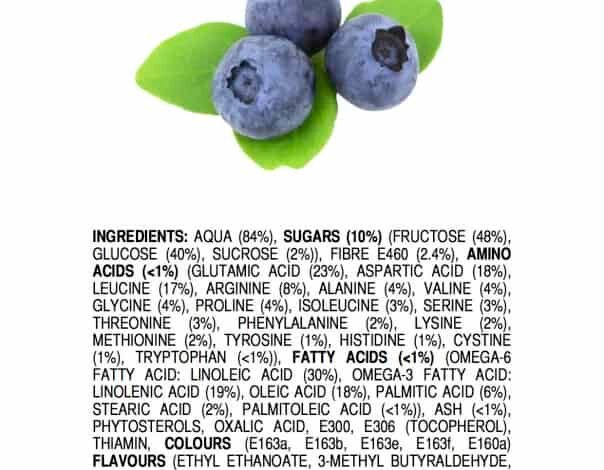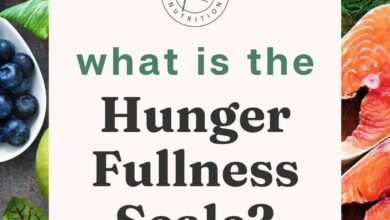Nutrition Myths 2022 – Stop Believing these Right Now

Just another day, just another five nutrition myths that need to die.
Welcome to my life!
I see the myths below circulating on social media all the time, and they honestly drive me nuts.
Half-Truth: For health and longevity, we should be eating the way our grandparents ate.
This is called the ‘nostalgia fallacy.’ Meaning, when people refer to a past era that they believe to be better than the present (but actually wasn’t).
I’m going to assume that people who perpetuate this myth believe that everyone’s grandparents, or at least ancestors in the 20th century, ate mostly whole foods, and very few ultra-processed ones.
This is true – according to this 2022 study, in 1800, ultra-processed foods made up less than 5% of the American diet. Even in 1900, that number was likely very low. In 2019, it was at over 60%.
While I fully support that way of eating, it’s important to understand that convenience foods have made life easier for a heck of a lot of people – including me.
While I don’t recommend a diet that’s made up solely of ultra-processed foods, there’s nothing wrong with consuming them. There’s also nothing wrong with processed foods, which include pasteurized milk, hummus, pasta, and canned….anything. Hey, our grandparents ‘processed’ their food, too!
Convenience foods were popularized during the 70s and 80s, because for the first time ever, women were spending less time in the kitchen, and more time in the workplace. Convenience foods have made our lives a lot easier. And while many of them are ultra-processed, this doesn’t mean we should never eat them.
If you’re looking to the early 20th century as an example of how things ‘should’ be, here’s a few things to know about life then versus life now:
First of all, people were more active back then. They moved a whole lot more, and this makes a difference in overall health. Even so, the life expectancy was lower. This may not have been completely food-related, but it most certainly is a health thing. We had fewer treatments for diseases, and we didn’t understand the relationship between food and health like we do now.
As a result, life expectancy now is literally double when compared to the turn of the century. What’s that about longevity, again?
As far as eating habits, it’s correct that there were fewer ultra-processed foods around then. At the turn of the century, people died of scurvy (vitamin C deficiency) and pellagra (vitamin B3, otherwise known as niacin).
Since the 1950s, we are eating more fresh vegetables, more fruits, more dairy, more sugar, more fish, more chicken, and less margarine and beef. Between 1965 and 2019, sugar sweetened beverage intake increased by over 300%.
The availability of foods, especially out-of-season fruits and vegetables, is a lot higher now. This is a good thing. My great-grandparents probably wouldn’t be eating strawberries – or any fruit at all – during January in Poland in the early 1900s.
Food is cheaper now, too. According to this piece from NPR, our grandparents spent more of their income on food.
It’s important to understand that not everything back then was great. Should we eat fewer ultra-processed foods? Yes. But you don’t have to go back to your grandparents’ days to just eat better.
Don’t eat food with ingredients you can’t pronounce.
I can’t deal with the TikTok videos of people in supermarkets, pointing at ingredient labels and telling us not to eat foods with ingredients we can’t pronounce.
This is absolutely ridiculous, since your ability to pronounce or understand ingredients may be limited by your education around food science.
I reviewed Wake Up and Read the Labels here.
I can tell from the quality of the content out there by these influencers that their food science education is extremely lacking…and so is their common sense and ability to actually just Google reputable sources.
Here’s the chemical composition of blueberries, for example.
Can you pronounce some of these words? I can’t, either. But I can assure you that there’s nothing scary in there. Always remember that the dose makes the poison. Nothing we eat is ALL HORRIBLE. You can certainly consume some ultra-processed foods without harm.
Another example is this list of chemicals in figs:
Now is a great time to tell you that some foods – whole or processed – contain chemicals that are used for other things. Figs contain benzaldehyde, which may inhibit cancer AND can be used as a cleaning solvent.
Isn’t science weird and crazy?
Formaldehyde is another example. It’s in your apples, but it’s also used to preserve dead animals in labs.
That doesn’t stop the Medical Medium from telling people not to consume it.
There’s enough chemophobia in the world without unqualified people making it all worse.
If you’re someone who produces content, can you please make sure it’s not complete and utter garbage? Thanks.
The wheat in Europe is healthier than in North America.
The term ‘healthy’ is pretty nebulous here, but I know people who say this often mean that they went to Italy, ate all of the pasta and pizza, and weren’t bloated at all.
Considering that Italy gets half of its wheat from Canada and the US, you may have actually been eating pasta made from the same wheat as it is at home.
Pasta is made with either highly refined soft white flour (something like we’d call cake flour in North America), or semolina flour. Durum semolina is a hard wheat flour that’s higher in gluten than a soft wheat flour.
In Italy, restaurants don’t usually serve a trough-sized portion of pasta like they do at home. Portions are small.
You were also probably walking a lot while you were over there. This can help with digestion and maintaining your weight while you were away. If, like me, you went to Italy with the mission of finding the best gelato ever and ended up eating it every single day (sometimes twice), and you came back the same weight you were before you left, it’s probably your increased activity and smaller portions of everything else.
Funny enough, both of these things can be implemented wherever you live.
Eating protein will help you ‘lean out.’
My friend’s trainer recently told her to incorporate post-workout protein shakes into her diet to help her ‘lean out,’ so I couldn’t leave this one off the nutrition myths list.
First and foremost, protein is a macronutrient that contains 4 calories per gram. It’s not calorie-free, so however you choose to consume protein, those calories are going into your body on top of whatever else you’re eating.
I’m telling you this because the ‘drink a protein shake after your workout’ recommendation by fitness trainers is common, and it’s often unwarranted. My friend’s trainer also recommended a super-expensive protein powder to her, which was also annoying AF.
All that trainer needed to do was to 1. *best idea right here* stay in their lane, but if they felt the need to make diet recommendations, 2. tell my friend that she should be getting around 25-30 grams of protein at meals.
Not ‘drink a 200 calorie protein shake after your workout regardless of how soon your next meal is.’
If you’re having a workout that’s just average – like, you aren’t an elite athlete or working out for hours on end, you probably don’t need a protein shake. Especially if your next meal is going to be sometime in the 1-2 hours following your exercise. The anabolic window is actually 24 hours, not 20 minutes.
Protein does have the highest TEF – thermic effect of food – of the macronutrients. That means that our bodies expend more energy digesting protein than they do fat or carbohydrate. So yes, you may absorb fewer calories overall from protein due to this process. But nothing about protein itself will ‘lean you out.’
Did I mention that my friend wants to lose weight? ADDING a protein shake isn’t going to help her. If you’re eating more calories than you’re expending you won’t lose weight. Period.
It’s also important to note that most of us consume enough protein without protein shakes.
Soil depletion means our food isn’t as nutritious as it used to be.
Again, the ‘good old days fallacy.’ In this as in a lot of nutrition myths, it’s used as a scare tactic, often to promote organic food or some shady MLM supplement *ahem* Juice Plus *ahem*
There’s a lot wrong with this claim, and I wrote an entire post on this here, so let’s cover it all briefly.
First off, farmers can’t grow anything in depleted soil. They’re constantly nourishing their soil to ensure this doesn’t happen.
Perhaps just as importantly, if our soil was as barren as these people would like us to believe, we’d be seeing a whole lot more nutrient deficiency than we are now.
Region, weather, variety, and when a fruit or vegetable was picked can significantly impact its nutrient content. This is why it’s extremely tough to make a decent comparison between two fruits or vegetables in different years, different regions, or even over several varieties.
All things are not equal when mother nature is involved. Our technology for measuring nutrient content of food has also changed over the years.
You can see what an utter f*cktangle it would be to try to line up all of the numbers and get an accurate reading of how nutrients in fruits and vegetables have changed.
When you see a graphic like this, I recommend that you unfollow whoever is spreading that sort of garbage, and scroll right on by.
We don’t eat enough fruits and vegetables to begin with – only 10% of us get the recommended number of servings each day. The last thing any dietitian wants is for people to be afraid to eat them, or feel pressured to buy everything organic.
I wrote about organic versus conventional food here.
What’s the best method for approaching a nutrition myth? Understanding that if someone is selling claims or products using fear, or if what they’re saying seems off, you probably shouldn’t be listening to them. Clean up your social feeds or scroll right by.
Source link
#Nutrition #Myths #Stop #Believing






